Today Current Affairs: 6th January 2022 for UPSC IAS exams, State PSC exams, SSC CGL, State SSC, RRB, Railways, Banking Exam & IBPS, etc
Table of Contents
Sindhutai Sapkal:
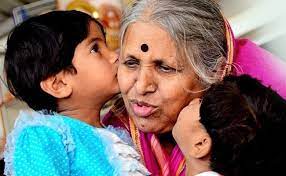
Renowned social worker Sindhutai Sapkal, fondly known as ‘orphan children’s mother’, died following a heart attack.
- Sapkal, who had received the Padma Shri last year, had completed 74 years in November.
- Born on November 14, 1948, in Wardha district of Maharashtra, Sapkal was forced to drop out of school after she had passed Class IV.
- Sapkal, who grew up in extreme poverty, went on to set up institutes for orphan children.
- Having raised over 1,050 orphan children, she could boast of having 207 sons-in-law and 36 daughters-in-law.
IHU Variant Of Covid-19:
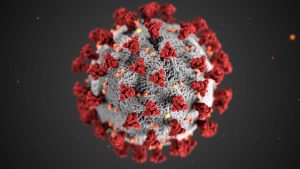
Even as the Omicron variant of the coronavirus continues to infect people in large numbers across the world, news about the emergence of another highly-mutated variant spread rapidly on January 4, 2022, raising fears of yet another wave of infections.
- This variant, B.1.640, has been found mostly in France so far, although it has also been detected in several other countries.
- The variant was reported to have 46 mutations, including some in the spike protein.
- The B.1.640 variant is not new. It has been around for at least three months.
- The sudden discussion around it was triggered by the circulation of a week-old study by researchers from Méditerranée Infection in Marseille, part of France’s Instituts hospitalo-universitaires (IHU, or University Hospital Institutes).
- The study reports the detection of a new variant in November last year among 12 people living in the same geographical area of southeastern France, the first of which had returned from a trip to Cameroon.
- The IHU variant that the researchers mention is B.1.640 which, according to global databases, was first discovered way back in January last year. The one that the French researchers found among people in November has now been classified as a sub-lineage B.1.640.2.
- While the large number of significant mutations in this variant has attracted the interest of researchers, and raised concerns among the public, the B.1.640 is not spreading at a rate that is unnerving. It is certainly not as alarming as the spread of Omicron.
Prime Minister Inaugurated The New Integrated Terminal Building Of Maharaja Bir Bikram (MBB) Airport:

The Prime Minister inaugurated the New Integrated Terminal Building of Maharaja Bir Bikram (MBB) Airport and launched key initiatives like Mukhyamantri Tripura Gram Samridhi Yojana and Project Mission 100 of Vidyajyoti Schools.
- The inauguration of the new terminal is seen as a first step to make the airport operational as an international airport owing to the State’s proximity to Bangladesh and accessibility to southeast Asian countries.
- Local tribal stone sculptures of the Unakoti Hills and local bamboo handicrafts have been extensively used in the interiors.
- The Maharaja Bir Bikram Airport was originally built by the US Air Force during the Second World War (1939-45) in collaboration with King Bir Bikram Kishore Manikya Debbarman of the erstwhile princely State.
- It was formerly known as the Agartala Airport and was renamed in 2018.
Bir Bikram Kishore Debbarman:
- Maharaja Colonel Bir Bikram Kishore Manikya Debbarman Bahadur (1908–1947) of the Manikya dynasty is widely regarded as Tripura’s pioneer King.
- He succeeded his father, Birendra Kishore Manikya Debbarman in August 1923. He was succeeded by his own son, Maharaja Kirit Bikram Kishore, who was king for two years till the state’s accession to India in 1949, but who did not rule, as he was a minor.
- He was the king of Tripura State till 1947.
- He played an important role in the development of Tripura. He is known as Father of modern architecture in Tripura: During his rule the entire planning of present-day Tripura was initiated.
- He was a pioneer in land reforms. In 1939, he reserved land for the local Tripura tribals.
- Later, this step was instrumental in the creation of the Tripura autonomous district council.
- He built the first airport in Tripura (Agartala airport).
Bioenergy Crops:

A new study has found that converting annual crops to perennial bioenergy crops can induce a cooling effect on the areas where they are cultivated.
- The researchers simulated the biophysical climate impact of a range of future bioenergy crop cultivation scenarios. Eucalyptus, poplar, willow, miscanthus and switchgrass were the bioenergy crops used in the study.
- The study also demonstrated the importance of the crop type choice, the original land use type upon which bioenergy crops are expanded, the total cultivation area and its spatial distribution patterns.
Bioenergy Crops:
- Crops from which Biofuels are produced or manufactured are called Biofuel crops or Bioenergy Crops. “Energy crops” is a term used to describe biofuel crops.
- Wheat, corn, main edible oilseeds/edible oils, sugarcane, and other crops are among them.
- Biofuels have a number of advantages over fossil fuels, including the ability to burn cleaner and emit fewer pollutants and greenhouse gases, such as carbon dioxide, into the sky.
- They’re also environmentally friendly, and energy corporations frequently mix Biofuels with gasoline.
Aquamation:
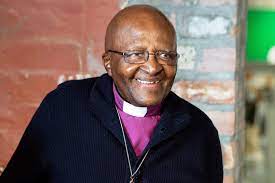
The Nobel Peace Prize winner Anglican archbishop and anti-apartheid campaigner Desmond Tutu died. He was very passionate about protecting the environment and taking necessary actions.
- In concurrence of his passion to save the environment, his body underwent aquamation, a green alternative to traditional cremation methods.
- The process of aquamation uses energy which is five times less than fire. It also reduces by about 35% the amount of greenhouse gases that are emitted during cremation.
About Aquamation:
- It is a process in which the body of the deceased is immersed for a few hours in a mixture of water and a strong alkali in a pressurized metal cylinder and heated to around 150 degree centigrade.
- The combination of gentle water flow, temperature and alkalinity accentuate the breakdown of the organic materials.
- The process leaves behind bone fragments and a neutral liquid called effluent.
- The effluent is sterile, and contains salts, sugars, amino acids and peptides.
- There is no tissue and no DNA left after the process completes.
- The process was developed and patented in 1888 by Amos Herbert Hanson, a farmer who was trying to develop an ingenious way to make fertilizer from animal carcasses.
- The first commercial system was installed at Albany Medical College in 1993.
- Thereafter, the process continued to be in use by hospitals and universities with donated body programmes.
- This process is referred to as alkaline hydrolysis or as Cremation Association of North America (CANA) (an international non-profit organisation) calls it flameless cremation.
- The process is also known as water cremation, green cremation or chemical cremation.
Desmond Tutu:
- Desmond Tutu is one of South Africa’s most well-known human rights activists, winning the 1984 Nobel Peace Prize for his efforts in resolving and ending apartheid.
- He is known as the voice of the voiceless for Black South Africans.
Right To Privacy:
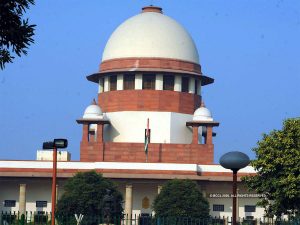
A Judge of the Madras High Court has said that a recent order passed by another judge of the same court, mandating the installation of CCTV cameras inside spas [massage and therapy centres], appears to run counter to the Supreme Court’s landmark judgement in K.S. Puttaswamy case (2017).
- In this case, the Supreme Court declared that the right to life and personal liberty guaranteed in Article 21 also implicitly includes a right to privacy.
Right to Privacy
- Generally understood that privacy is synonymous with the right to be let alone.
- The Supreme Court described privacy and its importance in the landmark decision of K.S. Puttaswamy v. Union of India in 2017.
- The right to privacy is protected as an intrinsic part of the right to life and personal liberty under Article 21 and as a part of the freedoms guaranteed by Part III of the Constitution.
- The Puttaswamy judgement holds that the right to privacy is protected as a fundamental constitutional right under Articles 14, 19 and 21 of the Constitution of India.
Restrictions (as stated in the Judgement):
- The right may be restricted only by state action that passes each of the three tests:
- First, such state action must have a legislative mandate.
- Second, it must be pursuing a legitimate state purpose, and
- Third, it must be proportionate i.e., such state action- both in its nature and extent, must be necessary in a democratic society and the action ought to be the least intrusive of the available alternatives to accomplish the ends.
GST Compensation:
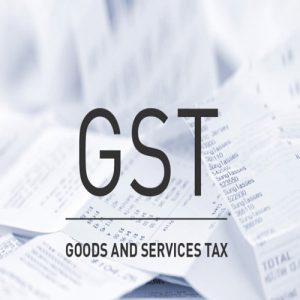
Finance Ministers of several States have demanded that the GST compensation scheme be extended beyond June 2022.
- The adoption of GST was made possible by States ceding almost all their powers to impose local-level indirect taxes and agreeing to let the prevailing multiplicity of imposts be subsumed into the GST.
- This was agreed on the condition that revenue shortfalls arising from the transition to the new indirect taxes regime would be made good from a pooled GST Compensation Fund for a period of five years that is set to end in June 2022.
- Citing the impact of the COVID-19 pandemic on the overall economy and more specifically States’ revenues, the States including Tamil Nadu, Kerala, West Bengal, Rajasthan and Chhattisgarh stressed that while their revenues had been adversely impacted by the introduction of GST, the hit from the pandemic had pushed back any possible rebound in revenue especially at a time when they had been forced to spend substantially more to address the public health emergency and its socio-economic fallout on their residents.
GST compensation:
- The Constitution (One Hundred and First Amendment) Act, 2016, was the law which created the mechanism for levying a common nationwide Goods and Services Tax (GST).
- While States would receive the SGST (State GST) component of the GST, and a share of the IGST (integrated GST), it was agreed that revenue shortfalls arising from the transition to the new indirect taxes regime would be made good from a pooled GST Compensation Fund for a period of five years that is currently set to end in June 2022.
- This corpus is funded through a compensation cess that is levied on so-called ‘demerit’ goods.
- The items are pan masala, cigarettes and tobacco products, aerated water, caffeinated beverages, coal and certain passenger motor vehicles.




